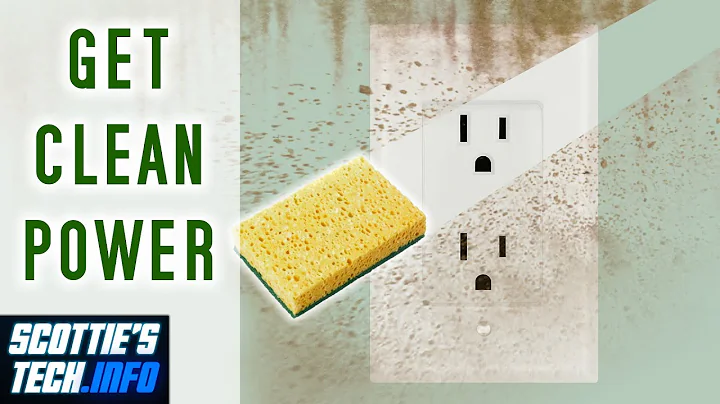Source: Pacific Computer
How to turn on the air conditioner and save energy is a topic that is brought up almost every summer.
It’s so hot that I can’t sleep without the air conditioner. When the air conditioner is turned on, the electricity bill keeps rising. It’s hard on the wallet, especially those who live in apartments and use commercial water and electricity. Guangzhou’s 150 yuan per kilowatt hour of electricity is really unaffordable. Today we will talk about various power-saving methods for air conditioners.
26 degrees is the most power-saving?
I believe everyone has heard the saying that turning the air conditioner at 26 degrees is the most energy-saving. Whether it is the recommendations in the air conditioner manual, the initial temperature of the air conditioner, or the brainwashing of various "experts", we have naturally accepted turning it at 26 degrees. This is the saying that it is the most energy-saving.
In fact, the higher the air conditioner temperature is set, the more energy will be saved. Not turning on the air conditioner will save even more energy! Everyone should understand this, so why is it often said that 26 degrees Celsius is the most energy-saving air conditioner?
This is mainly a cost-effective issue. The most comfortable temperature for the human body in summer is 22 degrees, and 26 degrees is a relatively balanced temperature. If it is lower than 26 degrees, it will be cooler, but it will also consume more power; if it is higher than 26 degrees, it will save power. , but consumes more power.
Therefore, the air conditioner's 26 degrees is only a relatively cost-effective temperature, not the most energy-saving.
Can turning off the air conditioner when you go out save electricity?
Just like turning off the lights with your hands, it has become a habit to turn off the air conditioner when you go out.
However, if you only go out for a short time, turning off the air conditioner and then turning it back on may consume more power.
The air conditioner will work at full capacity when it is first turned on to lower the indoor temperature to the set temperature. At this time, the power consumption will increase significantly. However, when the temperature drops to the set temperature, the air conditioner only requires smaller power consumption. Maintain this temperature.
Frequently turning off and on the air conditioner consumes more power than leaving the air conditioner running all the time.
If you only go out for a short time, you can turn the air conditioner up by 1.2 degrees. This will not only save the waste caused by frequently turning on the air conditioner, but also provide a cooler environment when you get home.
Can you save electricity by using a power-saving device?
Many people must have heard of things like power savers. This thing is very popular online. It is said that if you spend dozens of dollars, you can save twenty or thirty dollars for electricity every month.

So can battery saver really save electricity? The answer is obviously no.
In an AC circuit, there are two types of electrical power, one is active power and the other is reactive power.
Active power is the electrical power required to maintain the normal operation of electrical equipment, that is, the electrical power that converts electrical energy into other forms of energy (mechanical energy, light energy, thermal energy), such as light bulbs, induction cooker heating, etc.
Reactive power is the electrical power used for the exchange of electric fields and magnetic fields within a circuit to establish and maintain magnetic fields in electrical equipment. It does not work externally.
Some people may still not understand it, but there is a very vivid metaphor on the Internet.
Suppose you are pushing a cart, but place all the heavy objects farthest from the handle of the cart. You have to push the cart forward to prevent it from tilting up, while pushing the cart forward.
Then the effort you expend to push the car forward is active power, and the effort you expend to prevent the car from tilting up is reactive power. Is this understandable?
The power saver saves reactive power, which is equivalent to placing some heavy objects close to the handle of the cart to balance it, and you don't need to spend effort to keep the cart from tilting up.
However, household electricity meters calculate active power and do not calculate reactive power. Therefore, the power saver does not save electricity. It is an IQ tax product that is unscrupulous.
How can we make the air conditioner save more power?
So how can we make the air conditioner save more power? There are two methods. One is that the air conditioner itself is more energy-saving; the other is to make the indoor temperature drop faster and the air conditioner enters the energy-saving state faster.
Let’s talk about the first method first. This method is to purchase air conditioners with high energy efficiency and purchase more energy-saving inverter air conditioners.
But there is a problem with this method, that is, the price of these air conditioners is more expensive, and the price is not even half a star. How long will it take for the extra money to save electricity?Besides, the air conditioner at home is working fine, so there is no reason to replace it.
Compared with the first method, I believe everyone pays more attention to the second method. How to cool down the room quickly?
One method is to turn the fan blades of the air conditioner upward and use the principle of sinking cold air to spread the cold air faster. In theory, this approach is feasible, but in practice it doesn't save much.
To make the cold air diffuse faster, you can choose an air circulation fan. This fan can make the indoor air flow quickly, spread the cold air faster, and achieve a faster cooling effect. Moreover, the flow of indoor air can also You feel cooler, thus turning up the temperature.
Therefore, air circulation fans are also considered to be a good partner of air conditioners. Of course, if you don’t want to buy an air circulation fan, ordinary fans can also have some effect.
In addition, humidity will also affect the cooling effect of the air conditioner.
First of all, air humidity will change our body temperature. At the same temperature, the higher the humidity, the hotter we will feel.
Moreover, air conditioners are designed with an optimal operating humidity, which is generally required not to exceed 70%. The higher the humidity, the more power the air conditioner consumes. It also reduces the indoor temperature from 26 degrees to 25 degrees. In Guangdong, where the humidity exceeds 80% all year round, the power consumption is 50% higher than in the north.
Therefore, reducing indoor air humidity can also make the air conditioner cool faster and save more power.
Furthermore, regular cleaning of the air conditioner can also improve the cooling efficiency of the air conditioner and protect the health of your family.
is written at the end
It’s so hot in summer, you still have to turn on the air conditioner. If you want to save power, just don’t turn the air conditioner too low.
In order to save electricity, I don’t turn on the air conditioner, which makes me so hot that I can’t sleep. It only affects my work. But if it affects my health, the electricity bill saved is not enough to see a doctor, so the gain outweighs the loss.





















